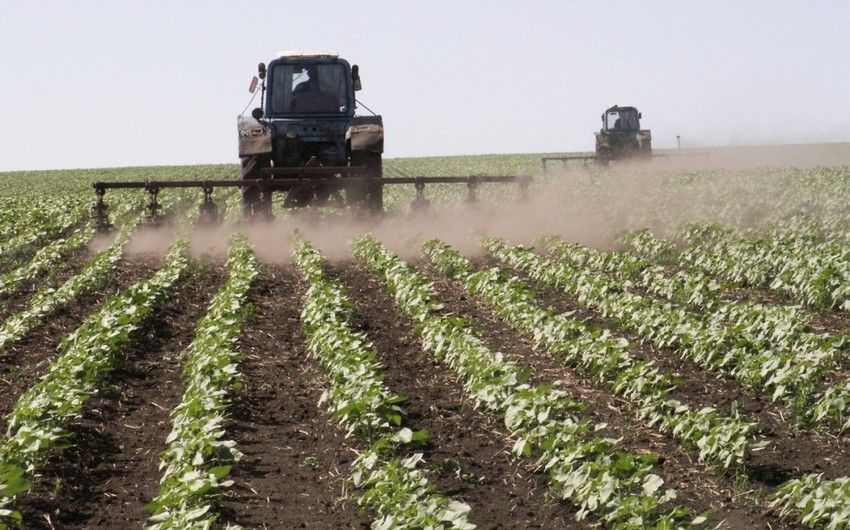Azerbaijan sets regulations governing buildings on agricultural lands

To enhance the efficiency of agricultural land utilization in Azerbaijan, plans are underway to establish a flexible mechanism for altering the designation of agricultural land and to regulate the construction or installation of buildings on such land.
Azernews reports that this initiative is reflected in the draft law amending the Land Code. This document has been developed in accordance with the presidential decree of July 15, 2021, titled 'On Several Measures for the Development of Production and Processing Industries in the Agricultural Sector.'
According to the proposed amendment, land plot owners (along with users and lessees, with their consent) will have the opportunity to change the designated use of agricultural land for the production and processing of agricultural products, excluding areas designated for summer and winter pastures, grazing, and mowing. Upon application, this change will be recorded in the state register of real estate. This adjustment within the agricultural land category, pending its approval, will improve the efficiency of land use by producers. The introduction of a more flexible mechanism in this regard, along with registration in the state register, will enable relevant authorities to assess the cultivated crops and enhance awareness.
Currently, transitioning from one agricultural category to another involves a complex process, making it challenging for landowners to implement changes in their economic activities. The proposed regulation aims to precisely govern this mechanism for land users. Furthermore, to ensure accurate information in the land balance, it stipulates the requirement of registering such changes in the state register of real estate.
Additionally, Article 13 of the Land Code specifies that infrastructure, temporary structures, and facilities can be installed on agricultural land in accordance with relevant environmental and technical standards, essential for effective agricultural organization. However, the absence of regulatory mechanisms regarding construction rules and conditions has led to challenges in implementing this provision.
Construction on agricultural land is vital for agricultural development and is based on necessity. Therefore, temporary structures can be erected within the framework of the agricultural land information procedure. Furthermore, the construction and installation of essential structures and facilities on agricultural land, as well as residential buildings for temporary worker accommodation, will be regulated under Article 13-1 of the Code.
Hence, construction and installation of essential structures and facilities, as well as temporary residential buildings for employees, will be permissible on agricultural land without altering its designated use. Moreover, the construction and installation of these buildings will be governed by the Urban Planning and Construction Code.
Recognising the critical importance of agricultural land and its role in ensuring the nation's food security, specific requirements and mechanisms for undertaking significant constructions are established. Accordingly, these buildings:
- Can be erected and installed on parcels of agricultural land comprising no less than 5 hectares and no more than 1 percent of the total agricultural land within a single boundary (excluding summer and winter pastures and communal grazing lands).
- Construction and installation of these buildings will be conducted in accordance with the Urban Planning and Construction Code, upon the request of the land plot owner (or with written consent from the user or lessee). It's not necessary to change the land plot's category or purpose for these purposes.
- Restrictions on minimum land area and maximum construction coefficients are waived during the construction of greenhouses and irrigation infrastructure. Hence, irrigation infrastructure can be implemented in smaller areas.Ownership rights over these buildings, as well as irrigation infrastructure and greenhouses requiring construction permits, will be registered in the state real estate register as per the 'Law on the State Register of Real Estate'.
Registering construction information in the state real estate register fosters increased investment by agricultural producers and processors, enhances land utilization efficiency, and safeguards property rights.
The draft law also comprehensively regulates construction rules and conditions for situations where the construction coefficient is partially utilized, when a portion of the land plot without significant construction is transferred to another owner or user, when a portion of the land plot is divided or merged with another plot, and in similar scenarios.
This legislation mandates construction projects for agricultural product production and processing exclusively within agricultural zones, prohibiting land use for other purposes without reclassification.
Overall, the draft law aims to facilitate access to financial resources for agricultural producers and processors, expedite efforts to enhance infrastructure and the agribusiness environment, elevate agriculture as a crucial sector of the economy, promote sustainable agricultural development, optimize public services, establish efficient management systems, and create conditions for quality improvements in agriculture and the development of the processing industry, thereby enhancing employment opportunities in rural areas.
The drafting process of the law involved studying and leveraging progressive international experiences.
---
Follow us on Twitter @AzerNewsAz
Here we are to serve you with news right now. It does not cost much, but worth your attention.
Choose to support open, independent, quality journalism and subscribe on a monthly basis.
By subscribing to our online newspaper, you can have full digital access to all news, analysis, and much more.
You can also follow AzerNEWS on Twitter @AzerNewsAz or Facebook @AzerNewsNewspaper
Thank you!

